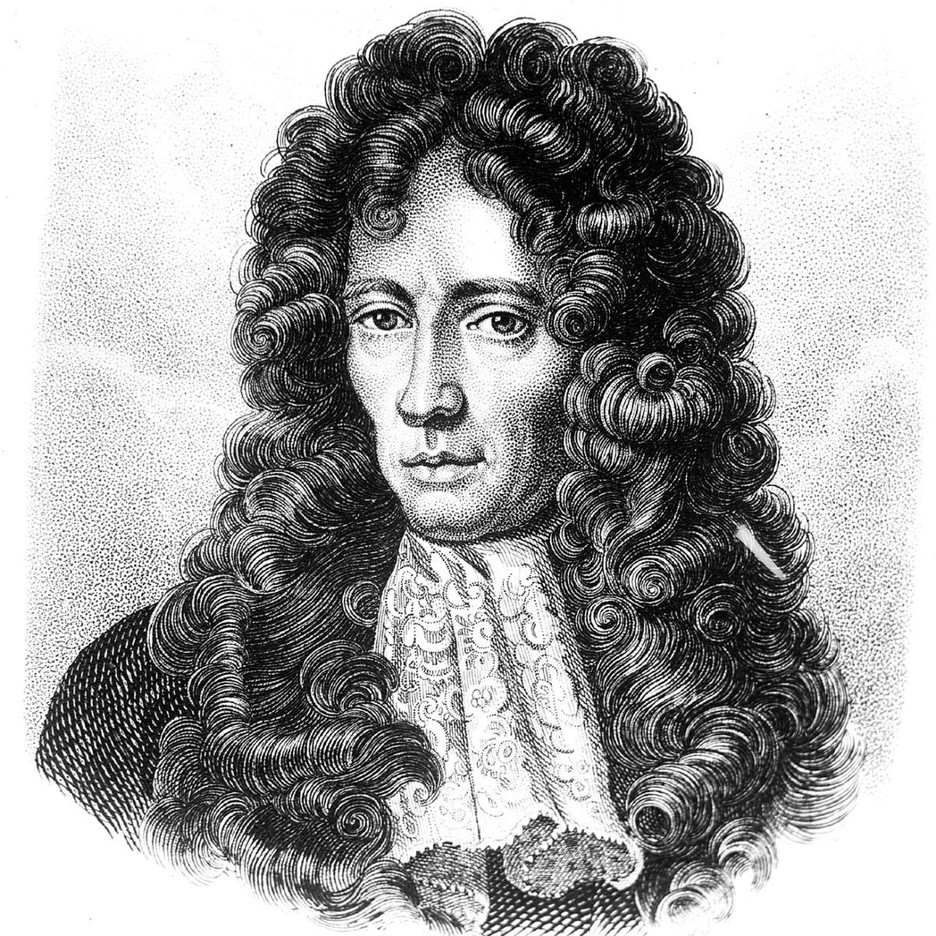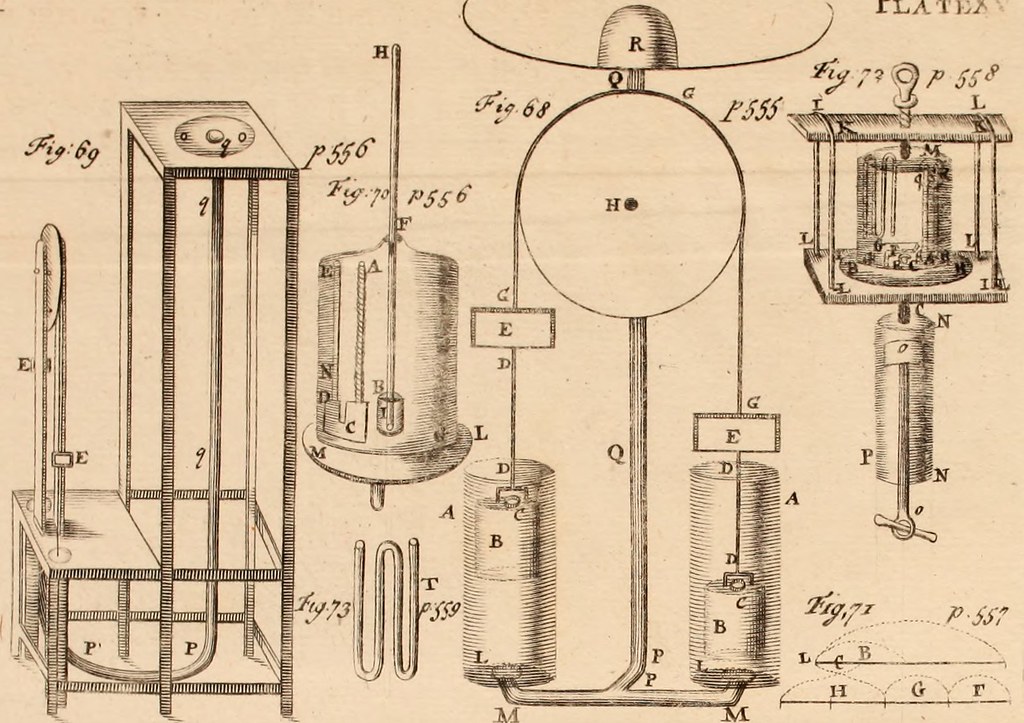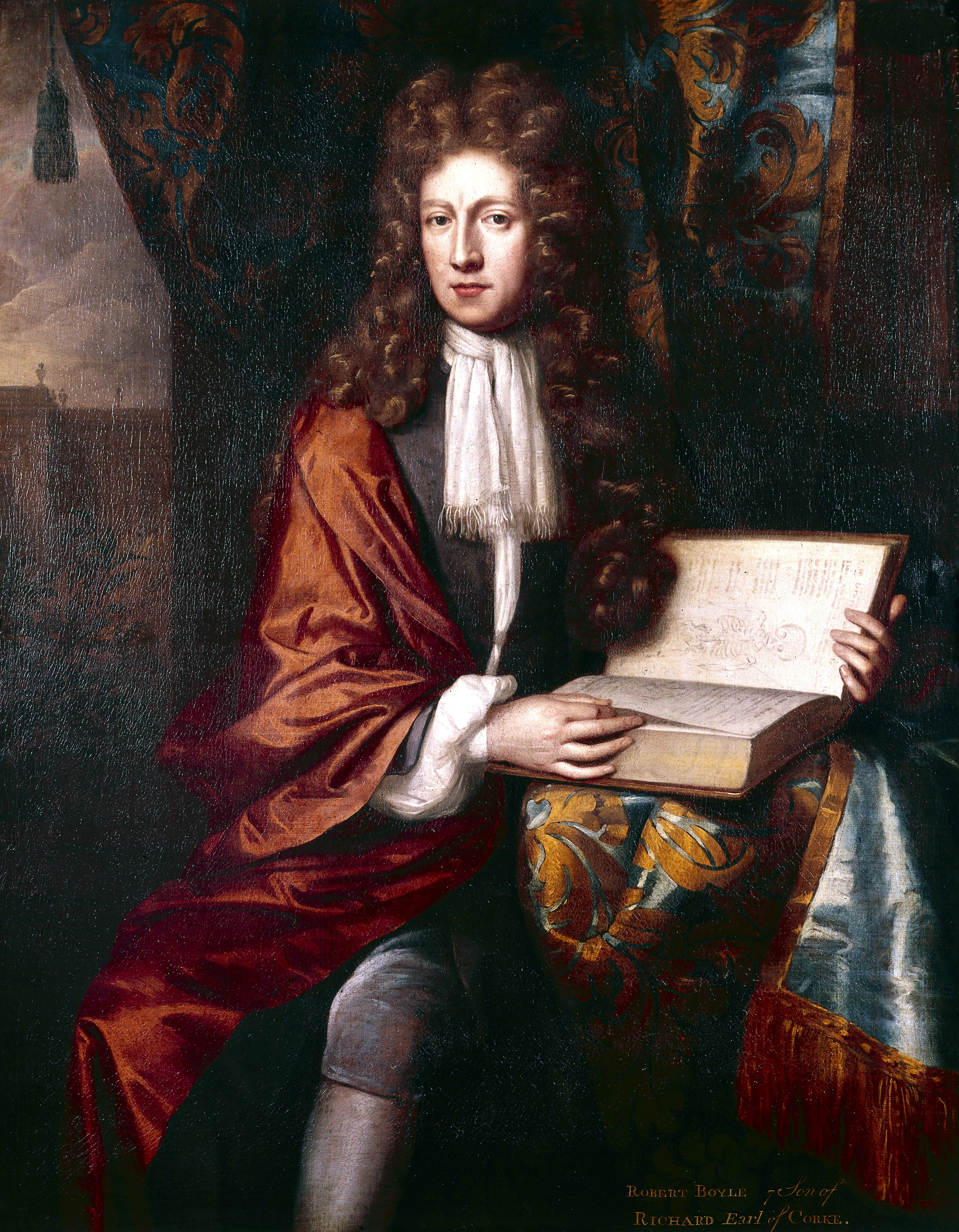
Who was Robert Boyle?
Robert William Boyle (25 January 1627 – 31 December 1691) was an Anglo-Irish natural philosopher, chemist, physicist, and inventor. Boyle is largely regarded today as the first modern chemist, and therefore one of the founders of modern chemistry, and one of the pioneers of the modern experimental scientific method. He is best known for Boyle's law which describes the inversely proportional relationship between the absolute pressure and volume of a gas if the temperature is kept constant within a closed system. Among his works, The Sceptical Chemist is seen as a cornerstone book in the field of chemistry. He was a devout and pious Anglican and is noted for his writings in theology.
Thunderous Inspiration

Loud claps of thunder woke young Robert Boyle with a fright. The furious storm outside made him wonder if the day of judgment were here. If it was, was his soul ready? At that moment, the 13-year-old Robert Boyle resolved to live a life dedicated to serving Christ, and the next fifty years were proof of his conversion that stormy night in 1640.
Born into a family of great wealth, Robert Boyle used his time, talents, and earthly treasure to advance the cause of Christ. He was a strong supporter of missions to Ireland, the Orient, and the young colonies in America. But Robert Boyle is most often remembered for his scientific work. Boyle considered his scientific experiments, like all his other endeavors, part of his Christian service, for it was man's duty to seek for God's purposes in nature.
Discovering the Laws of God

His Skeptical Chemist was an important work, moving chemistry from the world of alchemy into the realm of science. Boyle believed the orderliness of the universe reflected God's purposeful design. God established the universe according to certain natural laws, so that it worked like a mechanical clock, once the Designer had set it in motion. The scientist's duty was to discover what laws God had established. Robert Boyle himself formulated what became known as "Boyle's Law:" the pressure of a gas is inversely proportional to the volume it occupies.
Later philosophers and scientists would use Boyle's ideas on the mechanistic nature of the universe to remove God from the universe's workings, but Boyle himself never thought of the universe as an autonomous machine. All continued under God's sustenance and supervision. Boyle's scientific studies included work on the theory of colors, respiration, gems, and porosity. His work replaced the idea of occult influences in nature with a belief in natural laws established by God in creation.
One of the missions Robert Boyle actively supported was John Eliot's pioneer work among the Algonquin Indians in Massachusetts.
Dedication to the Divine

All of Boyle's life, including his scientific work, was to glorify God. Many of his writings were decidedly theological. He wrote tracts on divine love, ethics, the evil of swearing, the excellence of theology, and the style of Scripture. He even tried his hand at a Christian novel, Martyrdom of Theodora and Didymus. In 1662 Boyle was influential in establishing the Royal Society. A majority of the first members were Christians who saw science as a means of understanding God's workings in nature. In his will, he established a series of lectureships for proving the Christian religion against its opponents. The Boyle lectureships became an important forum for Christian apologetics, but the strongest apologetic Robert Boyle gave the world was his humble, upright, and dedicated Christian life.
DISTANT DATELINE: Emperor Justinian Issues Major New Law Code
IMPERIAL COURT, CONSTANTINOPLE, 534 AD. In a special interview with Emperor Justinian, our reporters learned the latest on the new code of laws to be established. Here are excerpts from our exclusive interview:
Q: Emperor Justinian, why is a revision of the Roman law code necessary?
A: Laws change with the changing conditions of the empire.
Q: What are some changes the Roman law has undergone over the centuries?
A: As the empire expanded, it became more multicultural. With the barbarian advances, Germanic influences on Roman laws have become evident. When Christianity was adopted as the religion of the empire, Christian influence on the law also became strong.
Q: How has Christianity changed the Roman laws?
A: The treatment of women has improved greatly under Christian emperors. Women now have the same right as men to control their property. Marriage laws have been strengthened. Divorce has been restricted, concubinage forbidden, and adultery is punished. Infanticide has been discouraged, and the exposing and selling of children is being stopped. Our new laws will give all such children their freedom. The government also has abolished the bloody gladiatorial contests which marred the society of pagan Rome.
Q: What is the significance of your new code?
A: I have assembled the best legal minds of the age to preserve the best of the past, reinforce Christian principles and provide a basis for equity and rationality. We define the relationship of Church and State--the one concerned with human affairs, the latter with divine matters. They will each be independent, neither subordinate to the other.
EDITOR'S POSTSCRIPT: The Justinian Code became the basis for the legal system of most European countries. It has been hailed as perhaps the most outstanding accomplishment in the history of jurisprudence.


_639003522088907085.jpg)